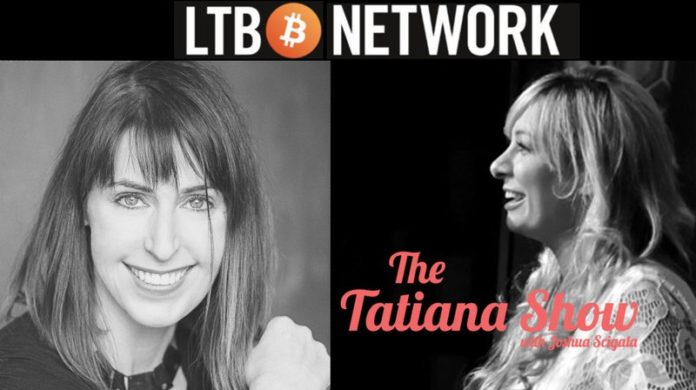
For many, the experience of adding crypto coins to their financial portfolios has proven to be the thrill of a lifetime. As a new type of holding with a unique set of tools and rules, cryptocurrency is wealth with its own wow factor.
But at some point, the giddiness of fiscal discovery should be followed by a sobering reality: life is short. While established roadmaps have long existed for the orderly passing on of most worldly properties, titles, debts, rights and obligations upon a person’s death, the same can’t be said for cryptoassets.
Think ahead to the days right after your last days on earth. How qualified is your will’s executor to manage your balance sheet of bitcoin, ether, Ripple, ZenCash and Ada? Are your loved ones ready to receive your private keys and open your hardware wallet?
Looking Ahead
A recent episode of The Tatiana Show podcast tackled this inconvenient question when co-hosts Tatiana Moroz and Joshua Scigala interviewed Pamela Morgan, Esq., an attorney/educator/entrepreneur/author who’s been working exclusively with Bitcoin and open blockchains since 2014. The impetus for the appearance was the publication of her new book, Cryptoasset Inheritance Planning: A Simple Guide for Owners.

As is the case with most how-to tomes, the inspiration for Morgan’s came from a real-world problem she kept encountering. “I started asking annoying lawyer questions,” Morgan says of her cryptocurrency-holding clients. “Like, ‘If you have a bunch of cryptoassets, can your family access them?’ If you have people who depend on you financially, if you want to have other people in your life, or charities or political causes you like to support, to be able to take advantage of your bitcoin or your other cryptoassets, you have to do something. If you do nothing, [it’s] pretty sure that your assets will not go where you want them to go, if they end up anywhere at all.”
You Can Be SURE
One of the cores to this blueprint for bitcoin-beyond-the-grave is executing what Morgan calls a SURE analysis, which stands for Security, Usability, Resilience and Efficiency.
“Obviously we want your plan to be secure first,” she notes, “but not security at the expense of all of the other things there, because your plan has to be usable, and not by you. We have all this knowledge of cryptocurrency, we know how we’re holding our keys, and so there are these underlying assumptions. We don’t realize that people don’t have the same knowledge that we do.
“So when people try to write it down for their heirs it becomes gibberish,” she continues, “because they don’t know what a private key is. They don’t know what a hardware wallet is — they don’t even know how to plug it in. So the worst case scenario is what do they do? They don’t just sit there. They go to the local Meetup group, Reddit, Facebook, and who’s there to help them? Who’s the greeting committee then?”
One can only imagine the trolls who are already hard at work, cooking up a sinister new industry built on stealing from confused beneficiaries. “People are not going to say, ‘Yes! My loved one is gone, now is the time for me to learn all about bitcoin,’” says Morgan.
It’s an eye-opening point. Currently, cryptocurrency is not like the vast majority of inherited assets for which time-honored legal expertise abounds. Although that general knowledge gap may someday close, today’s reality is that cryptoasset holders need a specific plan to ensure their beneficiaries are sufficiently educated on at least the bare mechanics of those holdings. Beyond that, it’s their additional responsibility to connect them to trusted people and organizations that will help them, not hijack their inheritance.
Get It Together — Together
Morgan suggests that the aforementioned security audit can be undertaken by the will’s creator and a trusted significant other, such as a spouse, side-by-side with that person actually writing the letter of intent for them.
“That way they’re guaranteed they know how to access everything,” she says. “They’re kind of creating this project together.”
As Moroz points out at the podcast’s end, “You never know when it’s time to go.” Unless your own personal deal with the Devil has a precise expiration date, that’s a simple truth to act on immediately. Having cryptoassets requires heretofore unprecedented estate planning — handle it any other way, and that high-tech portfolio is just child’s play.
This article originally appeared on Bitcoin Magazine.

Bitcoinmagazine.com is author of this content, TheBitcoinNews.com is is not responsible for the content of external sites.
Our Social Networks: Facebook Instagram Pinterest Reddit Telegram Twitter Youtube










